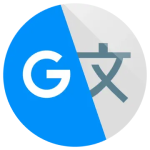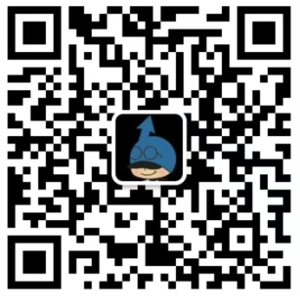
When working and living in Japan, due to Japan’s unique culture and habits, the apps used on PCs and smartphones are different from those in China.
In Japan’s network environment, applications and services provided by Google are very popular.
In this blog, I would like to introduce some apps that are often used in work and life in Japan.
* The cover image is a photo taken near the Beyond Japan headquarters.
First, let me introduce the apps that are often used at work in Japan.

Gmail is a webmail application launched by Google (Google), which is divided into personal version and enterprise version. If you use it for work, you need to purchase the enterprise version of Gmail (Google Workspace).
In addition, after signing a Google Workspace contract, in addition to Gmail, you can also use a variety of other apps, such as online meetings, calendars, documents, storage, online chat and other functions.
* By the way, in Japan’s work and life, various web services and apps provided by Google are quite popular.

This online video conferencing app called Google Meet is also a service launched by Google. Companies that have purchased Google Workspace often use it when conducting online meetings within the company or with external customers.

This online conference app called Zoom is also commonly used in Japan.
In addition to online meetings in daily business, it is also often used for online seminars and online events for non-specific groups of people.

Beyond’s Japanese headquarters often uses this chat app called Chatwork. It is not only used for internal communication within the company, but also for communication with external customers.
And because of its simple and easy-to-understand interface design, even people who are not familiar with IT can quickly get started.
In addition, in Japan, companies only use emails to communicate before establishing a cooperative relationship, and there are many cases where chat software is used for communication after the cooperative relationship is established.
* By the way, there are also many Japanese companies that completely prohibit the use of chat software.

Slack is a chat app similar to Chatwork, mainly used by engineers in IT companies.
In Slack, you can use and manage it directly by simply pasting the source code of the program. It can also collaborate with other IT tools through API, so it is very popular among engineers.

After the debut of ChatGPT, the development and use of AI generation has developed rapidly in recent years. The same is true in business activities in Japan, where ChatGPT is often used for article generation, image generation, business automation, etc.
However, in Japan, due to regulatory restrictions or concerns about confidential information leakage, some companies prohibit the use of AI generation apps including ChatGPT.
However, if AI generation apps can be used correctly, work efficiency will undoubtedly be greatly improved. Therefore, it is recommended that everyone use it in compliance with corporate rules and regulations.

Facebook is a social app that has been used for a long time in Japan. In business activities in Japan, in order to establish business contacts with the other party you meet for the first time, you usually exchange Facebook IDs with the other party to communicate.
However, it seems that young people don’t use Facebook much these days, and people in their 30s to 50s use it more.
Next, I will introduce some APPs that are often used in daily life in Japan.

LINE is a social APP that is often used by family and friends, and its users range from the younger generation to the older generation.
Although LINE has the same messaging function as WeChat, which is often used in China, it is rarely used to contact customers in business activities. Some Japanese companies even have regulations prohibiting the use of LINE to contact customers.
In addition, in Japan, if you say to someone you are not close to for the first time, “Let’s exchange LINE IDs,” the other party will show a surprised expression and keep a distance from you, so be extra careful when using LINE in Japan.

YouTube is a video app similar to the popular bilibili in China, which contains various videos such as animation, TV series, movies, live broadcasts, etc. But it does not have the barrage function of bilibili.
Of course, the videos on YouTube are different from those on bilibili. “If you are not interested in the videos on bilibili, then watch YouTube.” It would be more interesting to use bilibili and YouTube in comparison like this.

Unlike the functions of YouTube mentioned above, YouTube Music is a music app. Since it has an offline playback function, you only need to download your favorite music in advance and enjoy it even without an Internet connection.

Although there are various payment apps in Japan, the most used one is this one called PayPay (similar to China’s Alipay).
When shopping with PayPay, the more you spend, the more points you accumulate. The accumulated points can be used for shopping again.
In addition, the parent company of PayPay is Softbank, a large Japanese IT company, which is one of the reasons why PayPay is so popular in Japan.
* When using PayPay in Japan, you need to bind a Japanese ID and a Japanese bank account.

Amazon.com is an online shopping app provided by Amazon with a wide range of products. After recharging to become a monthly member of Amazon, you can enjoy various benefits such as free delivery and next-day delivery.
Amazon started out as an online book seller and later developed into a well-known IT company.
By the way, Amazon is the parent company of AWS, which provides commercial cloud platform services. The funds for the operation of the entire AWS company come from the income of AWS.
* Due to the surplus of servers used in the base of Amazon’s online shopping system, these servers were provided to enterprises as cloud servers, which turned out to be very popular. This is the beginning of the current AWS.

Things that are not used at home can be sold on this flea market app called Mercari, which is very popular in Japan.
However, there is a mysterious rule in Mercari, although I don’t know who made it. That is, the buyer must send a message to the seller: “I have placed an order. Although the time I contacted you was very short, thank you for your care during this period.”
If you do not follow this unwritten rule, when the seller will give the buyer a bad review, it will become difficult for the buyer to continue buying things next time.

Yahoo! Auction is also an app similar to a flea market. But the difference between it and Merecari is that the purchase of goods is carried out in the form of bidding (auction).
For example, when rare goods are sold, due to their own rare value (many buyers want them), the goods will naturally enter the auction mode, and the highest bidder will win in the end. There are many cases like this on Yahoo! Auction.
However, it is also true that many rare goods are sold on Yahoo! Auction, which makes it have a large number of loyal users.

Instagram is an SNS (social network) app similar to China’s Xiaohongshu. Although I don’t use it often, I sometimes browse photos and videos posted by others on it.
Here are some apps that are often used in work and life in Japan.

China’s online search engine is Baidu. But including Japan, the majority of users around the world use this Google Search.
Of course, like Baidu, when attracting users online, SEO search engine optimization and other means are usually implemented on Google Search. At the same time, it is also very important to place advertisements (Google ads) online to increase exposure.

Google Maps is a mapping app by Google, similar to Baidu Maps or Gaode Maps. Its features aren’t vastly different from China’s mapping apps.


Google Translate is Google’s translation app. If you’re worried about language barriers while working or living abroad, its real-time conversation translation feature is a great tool to use.


▼ Company WeChat Official Account▼

▼ Contact person in charge WeChat ID ▼


 Follow us on WeChat
Follow us on WeChat
 WeChat Official Account
WeChat Official Account
 Person in ChargeWeChat
Person in ChargeWeChat